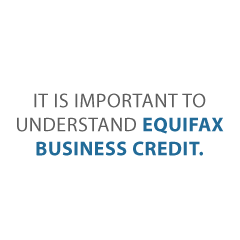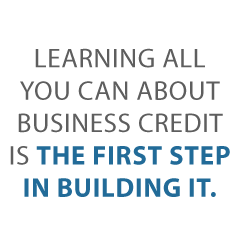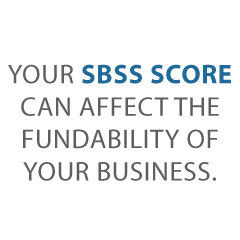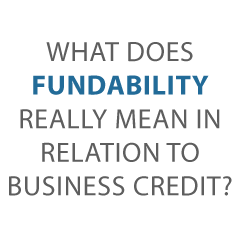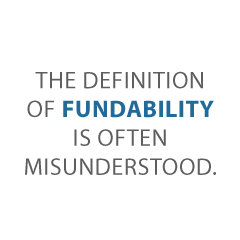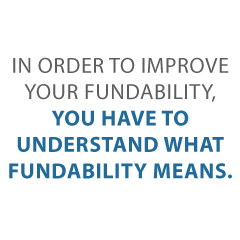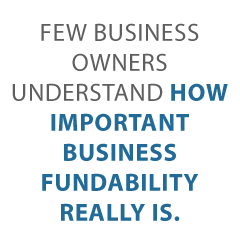Recession Fundability: How Your Business Can Get Fundable
So, recession fundability means what? What does it mean when we say a corporation is fundable? This recession fundability analysis ought to get you thinking about your company – and company credit in a whole new light.
Recession Fundability Means What?
So let’s get what recession fundability means out of the way from the very start.
Recession fundability means of or capable of being funded; deserving of being funded, even in a recession.
But what is the fundable meaning in our context?
In the Business Credit Context, Recession Fundability Means What, Exactly?
Here, recession fundability means something a bit different.
So the fundable definition is still ‘capable of getting funding’. It additionally implies – able to be funded by a lending institution or a credit company.
With this fundable meaning, we look more at what credit providers and lenders want to see. But let’s go back for a moment.
Why Fundability Matters
So you’re an entrepreneur. And like each and every single other business owner, since the beginning of time, your company needs money.
There are a few methods for companies to get cash. Without entering into core details, the main ways for companies to get cash are to:
(1) Sell products or services
(2) Sell their assets such as land, vehicles, tools, or office space in buildings they have
(3) Get crowdfunding
(4) Get angel investing or venture capital payments, or
(5) Borrow money.
So for the purposes of our fundable meaning, we are only looking at # 5.
But lenders and credit providers want to see if your business is a good credit risk.
Fraud Runs Rampant
Complicating matters is the problem of scams. Per a 2009 Experian report, “fraud-related costs for U. S. businesses are more than $50 billion annually. This figure may understate the extent of the problem, as estimates show that up to 30 percent of all bad-debt commercial losses are due to ‘soft’ fraud, which primarily occurs from material misrepresentation on an application. Combined with the fact that business fraud is estimated to be three to 10 times more profitable than consumer fraud, business fraud has become a growing concern for organizations.”
As a result of so much fraud, lenders and credit providers examine credit applications exceptionally thoroughly.
Basically, they are looking for any way to tell you no when you come to them for money. Their fundable definition includes the element of fitting their requirements for not being scammers. For financial institutions and the like, company legitimacy makes all the difference in the world. No legitimacy, then no funds. It’s that simple.
Due to their careful checks for fraud, lenders and credit providers consider many different aspects of your application. So they look at many aspects of your corporation, as well. And they are even looking at facets of you, the owner.
Your mission is to alleviate their fears of scams. And you do this by getting rid of every reason they might use, to possibly say no to offering you cash.
A Significant Side Benefit to All This Fundability
There’s another reason that fundability matters. Your leads and customers also want to feel that your company is the real deal. They do not wish to do business with what they view to be a fly by night operation. And could you blame them?
Developing and enhancing fundability to lenders and credit providers will have an added bonus. So that is of giving off a dependability vibe to individuals and corporations intending to buy your goods or services.
Fundability Data Details
Fundability begins with understanding what lenders and credit issuers are seeking. Then we’ll take a look at just how to most effectively accomplish and supply what they want.
Fundability all begins with your industry.
Your Industry Can Affect Recession Fundability
Some industries are believed to be high risk or restricted. These industries, by definition, are most likely to have a more difficult time getting funding of any type.
Industry Selection High Risk or Restricted
Normally, restricted and high risk industries have some things in common. There may be high risks of injury at work. Or the industry might engage in a lot of cash transactions. This is true no matter the safety record of a specific firm, or most of its transaction types.
A Look at Some High Risk Industries
Per the SIC, the following industries are high risk: travel agencies. The NAICS concurs.
A Look at Some Restricted Industries
Per the SIC, the following are restricted industries: pawn shops. The NAICS agrees.
Industry Aligned on All Records
This is the concept of congruency. And it is going to turn up over and over. Business credit reporting bureaus and lenders will analyze your corporation meticulously. Among the main ways they do this is by strictly looking for matching records.
Due to this, if your records do not all match, it will turn up as if they are missing. Missing records will activate a rejection, as a loan provider will assume fraud on its face.
Therefore, it is critical to ensure that every record, everything, is identical.
It goes beyond your industry. It’s also your corporate name, address, phone and fax numbers – everything! These must look the same everywhere. So this includes in IRS records. And in your firm’s records with Dun & Bradstreet, Experian, and Equifax. It also means all licenses required to run your company, and incorporation documents.
Copy/paste this information; do not chance it with retyping.

Demolish your funding problems with 27 killer ways to get cash for your business. Get money even during the worst of a recession.
Even Your Business Name Can Affect Recession Fundability
You can be innovative when naming your company.
So you want to craft the ideal remarkable name which is easy to spell and say. And you want it to evoke your corporation’s mission statement. But there’s also the matter of risk. Including a risky business type in your corporate name will cause financing rejections.
There is nothing misleading, unlawful, or underhanded by doing this. So it’s okay to keep the name of a high risk or restricted industry out of your business name.
Listed ownership uniform
Congruency counts here, too. Your listed corporate ownership must be the same anywhere you list it.
All corresponding pages list uniform business data
It is best practices to keep a record of every place where your corporation has a listing.
Website
A professional website is a must. A small business needs a professional-looking web site. And it must have site hosting from a provider like GoDaddy. Don’t use Weebly or Wix. It needs to be your domain, not domain.wix.com. Use Upwork to employ people who can help you get set up. Get a professional logo from Fiverr.
Industry aligned
Check out the more successful competitors you have in your industry. What do they include? What do they omit? And what do they highlight?
You do not need to copy another website. And it isn’t in your best interests to do so, anyhow. But do not hesitate to crib from a few of their better ideas. If those concepts work for them, then they may benefit you, too.
Business owners listed
Just like on the documents of the business, you need to display the owners of your business.
Customers and potential customers want to know who they’re dealing with.
And don’t neglect to include your About Us web page on your checklist of locations with corporate information which must be consistent.
Business name and address uniform
Congruency is a requirement here as well.
Special characters
It’s the exclamation point in Yahoo! or the like. Don’t do this, if you can at all help it.
There are going to be people inputting your company name right into internet browser address bars. By including special characters, you’ve just made it harder for them to do that.
Industry in name
Is it better to place the name of your industry into your company name, or not?
If your industry isn’t high risk or restricted, then it may be a good idea. Making things clearer for your prospective customers and customers is often beneficial.
But do not place the name of a high risk or restricted industry in your company name! There is absolutely nothing deceptive or misleading about this.
Available with state
Is your business name offered in your state? Check your name with your Secretary of State — they may require that a business name be unique.
Searchable
Any web site must be searchable.
Because if you make your customers and prospects go to another web site, they might not return.
Your Business Address Can Affect Recession Fundability
A corporate address must be a real brick and mortar building. It must be a deliverable physical address. This can never be a home address or a PO Box. Do not use UPS mailing addresses. Some lenders will not approve and fund unless this criterion is satisfied.
PO Box PBSA
A PO Box PBSA stands for a PO Box Post Box Street Address. Lenders and credit providers know that these are really post office boxes. They will see these as being non-legitimate ‘addresses’, just like post office boxes.
Physical or virtual office (CMRA)
Many business owners, particularly startup owners, do not have the money for actual office space. But loan providers check USPS and places like Google Maps to see if you’re using a home address. If you are, you often get an immediate decline. Never use a home address on your application. Even if your firm is just you.
Luckily, the good news is, virtual offices are available in all states and many cities.
A virtual address is a great solution. We recommend Alliance Virtual Offices, Regus, and DaVinci.
Same state business is incorporated
Your virtual office, preferably, must be in the same state where your company is incorporated.
Mailing address vs. physical address
In the very same vein as the caution against a PBSA, you need an actual physical address versus a mailing address.
Even Your Business Phone Number Can Impact Recession Fundability
Your corporation must have its very own telephone number. Do not give a personal cell or residential phone as a company phone number. But VOIP (voice over internet protocol) is fine.
Likewise, your business phone number must be toll-free. This is 800 exchange or such.
Uniform number
Again, congruency is an absolute requirement. This includes using the area code anywhere the number is listed.
Mobile, Home, and Business numbers
A cell number or home telephone number as your primary business line may get you flagged as un-established. Your corporate number must only be used for your corporation. It must not be an added line for your family to use.
Recession fundability means the company’s phone is just for the business and no one else.
Voicemail content
Your voicemail greeting should, at an outright minimum, inform the client who they have reached and when you can return their telephone call.
Business 411 Listing
You must list your company telephone number on 411. You can do so on ListYourself.net.
Your phone number needs to have a 411 listing for most credit issuers, lenders, vendors, and even insurance providers to approve you. Check your record to see if you’re listed. Ascertain your information is accurate.
Business name and telephone number uniform
As always, congruency is crucial here.
Time in Business
The amount of time you have been in business is, of course, a sign of reliability and for that reason fundability to lenders and credit providers.
Incorporation date
But what is the day when a corporation starts? It’s the day of incorporation. This is one reason why, the quicker you incorporate, the better.
Business license issue date
Does your business have every one of its necessary licenses to operate in your industry and area? When did you get your licenses? A lender or credit provider won’t consider your company to genuinely be in business if you’re missing essential licenses. The faster you get licensing, the better.
With no license to work in your industry, your ability to attain fundability is cut off at the knees. The lender or credit provider will feel it’s more important to safeguard the public than to give you funding.
A Business Bank Account is Vital for Recession Fundability
A vital piece of the fundability puzzle is having a separate business bank account. You need a business bank account, to keep funds separate from your personal accounts. Commingling personal and company funds and expenses is a recipe for an audit from the IRS. The simplest way to keep these two universes distinct is to have separate bank accounts.
Bank account open date
The day you open your business bank account is an important one in the life of your corporation. The account opening date is the business’s opening date, far as lenders are concerned. A longer history is better.
It’s also the business’s opening date, so far as the business CRAs see it. This is because the business CRAs have seen some firms try to do an end-run around time in business requirements by buying shelf corporations.
A shelf corporation is a corporation with value only in its age and nothing else. CRAs see the practice of buying them as deceptive. As a result, business owners can wind up spending hundreds if not thousands of dollars for a shelf corporation, only to see their cash wasted when the age of the shelf corporation isn’t taken into consideration by the CRAs at all.
Actual business account (not personal)
There are some similarities between personal and business bank accounts. But to open a business bank account, the business owner must submit added documentation. This includes business registration paperwork. It can often (though not always) include proof of having an EIN.
A business bank account lists both the owner and the business. Such accounts may require a certain minimum balance to avoid maintenance fees. Fees in general tend to be higher than those for personal business bank accounts.
Business name, address, and ownership uniform
Congruency is a requirement here, as it is in all other areas.
Checking account history
Financial institutions keep credit ratings which help them determine whether to lend your company cash. Essentially, these are unbiased measures of fundability, per the lender. In part, these scores are based upon the historic actions of you with reference to your business bank account.
A rating of Low-5 is usually believed to be the minimal rating for getting funding.
Possibly the simplest way to accomplish and maintain a terrific bank credit score is to deposit a minimum of $10,000 into your business bank account and keep it there for as long as three months. On top of that, make consistent deposits.
These activities will help in three ways. One, you will have maintained a superb minimum balance for a minimum of three months. Two, you will probably not overdraw with such an outstanding balance. And three, you will be at the magic minimum for a Low-5 bank credit score.
NSFs and Negative Balances
Writing checks with insufficient funds (NSFs), or going into the red are certain ways to ruin your bank rating.
By keeping a minimum balance of $10,000 on a consistent basis, you will, generally, make NSFs and negative balances a distant memory.
Your Business Entity Can Affect Recession Fundability
A business entity defines issues of liability. And it makes a difference when it comes to taxes.
The best business entity for fundability is a corporation.
Corporations are legally distinct from their owners. This is the case even when a business has just one employee or only one owner. Or they are the same person. Whether you choose a C-corporation, an S-corporation, or an LLC is your choice. Speak to an attorney or an experienced tax expert to find out which is the best possible choice for you.
Sole proprietorship
A sole proprietorship means the business owner is it when it pertains to liability and tax obligations. Nobody else is responsible.
DBA
Any complete business name must include any documented DBA filing you use. This is a necessity for records congruency.
But no matter what, if you run a small business as a sole proprietor, the best thing to do is to incorporate. If you have already filed a DBA, you will still have to move onto a corporate business entity. You should only look at a DBA as an interim step on the way to incorporation.
Good standing
Check with your Secretary of State to ensure they have all the needed information for your corporation. See to it that you are in good standing with them. And make sure that your entity is active. You must file annual reports and pay a yearly fee to stay active.
Foreign filing
A foreign LLC is a limited liability corporation formed in one state but registered in another state. It isn’t an LLC formed outside of the USA. A distinct registration is needed because the laws between the states vary.
If your corporation operates outside of your state, it will reinforce fundability to foreign file.
Registered agent
A corporation will also need to choose a registered agent that they show on the Articles of Incorporation. A registered agent receives service of process and legal and tax papers on behalf of the corporation.
Business name, address, owners, and listed ownership uniform
Congruency is necessary here, as in all other areas. This includes if you were in business prior to incorporating, as commonly states will require a business to use a term like ‘incorporated’ or ‘LLC’ in its name.
Date acquired
If you purchased your company from another person, when was that? It will count toward time in business. The longer, the more fundable your business is.
EIN #
Visit the IRS site and get a free EIN for your company. This is also where you pick a business entity like corporation, LLC, and so on.
To open a business bank account, you need an EIN, so get this out of the way first. The IRS has a form for everything, including getting an EIN, the Federal tax ID number. This is form SS-4. When you have filled it out, either mail or fax it to the appropriate office. The form has this info.
EIN issue date
You must get your EIN ASAP, so you have it for filing tax returns and making bank deposits. Per the IRS, if you do not have an EIN by the time your business tax return is due, write ‘Applied For’ and the application date in the space where you’re supposed to add the EIN. Do not put your Social Security Number there. See:
Being behind in filing your taxes will not do your business any favors regarding fundability.
Business name, address, owners, industry, contact information, and listed ownership uniform
Congruency is a necessity on your EIN application, as in all other areas.

Demolish your funding problems with 27 killer ways to get cash for your business. Get money even during the worst of a recession.
Your Email Can Even Affect Recession Fundability
Corporate e-mail addresses must be professional. This means something like admin@yoursite or info@yoursite.
Company domain
Your corporate e-mail must be on the exact same domain as your company. Do not use generic free e-mail services likes Gmail, Yahoo, or MSN.
Uniform on all records
As everywhere else, congruency is a necessity for email records.
Business Licenses
A business must have all of the licenses necessary for running.
These licenses all must be in the perfect, precise name of the business. And they must have the very same business address and phone numbers.
This means not just state licenses. But it can possibly also mean city licenses. Check with your Secretary of State’s office. Here, recession fundability means being responsible.
Business name and listed owners uniform
Congruency is a requirement on your company licenses, as in all other areas.
License obtained when required (not always required)
Your state and industry may have their own licensing requirements, if any. The best place to find the specifics is with the Secretary of State’s office for the state where your company is incorporated. If you do business in more than one state, then check their Secretary of State offices as well.
Business Credit Reports
Fundability often depends upon business credit.
Bureaus
The most significant and best-known business credit reporting agencies (also called CRAs or bureaus) are D&B, Experian, and Equifax.
D&B report
This is the only bureau for credit monitoring strictly focused on business credit. It checks your corporation’s interactions with suppliers and vendors. Many potential suppliers check the Dun & Bradstreet report on your corporation before offering credit terms. This means it is important for you to keep the D&B report of your company updated and accurate.
Experian report
Like Dun & Bradstreet and Equifax, Experian also gathers info available in various public records together with details from collection agencies, credit card companies and various other data sources.
Equifax report
This bureau likewise collects all trade credit information and information from various public records to review your corporation’s creditworthiness. However, their report depends heavily on how your corporation interacts with various banks as well as different traditional lenders like credit card providers.
Business Data Agencies
These businesses gather data and supply it to the business CRAs.
CreditSafe
CreditSafe provides corporate and consumer reports. They also provide monitoring, collection services, and financial statements.
CreditSafe also provides alternative credit, where they base some of their scoring on utility and rent payments. These payments are usually not taken into consideration by other CRAs unless they’re late. CreditSafe reports these payments whether positive or negative.
Utility payments on your CreditSafe report can include power, cable, internet, and phone. You can include other third-party payments like Credit Suite, CRM, and software.
LexisNexis Report
LexisNexis is a source where a number of the lenders denying loan applications get their information from. They offer information regarding likelihood to pay, or not.
Lenders compare LexisNexis info to what you put on your financing application. If the application and LexisNexis don’t match, then loan providers will deny you a loan. They will see the incongruity as fraud.
SBFE
The SBFE collects information on small businesses from its members, which are loan providers. Lenders use this info to make credit decisions.
FICO SBSS
FICO uses its SBSS (Small Business Scoring Service) Score to integrate consumer bureau, monetary, application, and business bureau data. FICO then validates their SBSS versions for deals like Credit line transactions, and term loans. And it looks at commercial card obligations up to $1 million. The idea is to review just how your small business pays off all kinds of loans.
Business credit providers and the SBA use the FICO SBSS score as a tool to choose whether they should authorize a loan to your company.
Identification Numbers
The CRAs use identification numbers to designate your company.
BIN # (Business Identification Number)
Experian’s BizSource assigns a BIN.
D-U-N-S #
Start at the D&B website and get a free D-U-N-S number. If there is no D-U-N-S number, then there is no record and no PAYDEX score. Your D-U-N-S plus three payment experiences gets you a PAYDEX score.
Business Credit History
Your company credit history is the single most important driver of your business credit scores. Here, fundability means paying your business’s bills on time.
Late repayments will impact your business credit score for years. If you pay your business financial obligations off, as fast as possible and as fully as possible, you can make a very real difference in your credit scores. No other aspect of business management more directly influences your company credit scores.
Make sure to pay on schedule and you will directly and favorably impact fundability.
UCC Filings
If the business owner has poor consumer credit, lenders will often take out a UCC blanket lien if they give your corporation funding.
A UCC blanket lien is a note which goes on your credit report. It says that the lender has an interest in all your corporation’s assets until you pay off the loan in full. Thus, there may be dire consequences if you default.
These UCC filings are a matter of public record. Lenders and credit providers take them into consideration when deciding if your corporation is fundable.
Judgments, Liens, and Bankruptcies
These are all a matter of public record. And they can all negatively impact recession fundability.
Together with UCC blanket liens are any other kinds of liens as against your business assets. A lien is a credit provider’s right to retain possession of property belonging to until the financial obligation owned by that individual or company is discharged.
A lien isn’t quite the same as collateral — it’s the property which is subject to the lien is the collateral.
Total number of trade accounts and highest credit limit
These come from credit issuers which give you starter credit when you have none. Terms are generally Net 30, rather than revolving.
The more trade accounts, the better. In general, at least five to eight are necessary before moving onto credit cards which are harder to get. But pay attention to your highest credit limit.
Your highest credit limit is an important figure for credit issuers and lenders. For example, unsecured financing can result in a loan of 5 — 8 times the amount of your highest revolving credit limit account. So, by definition, the higher your highest credit limit, the more you can get from this form of financing.
In addition, some credit issuers want to see a particular high credit limit before they issue credit to your business. In general, a few high credit limit accounts do more to enhance business fundability than a large number of very low credit limit accounts.
Age of trade accounts
How long have your trade accounts been open? This should correlate more or less directly with your time in business. By getting trade credit ASAP, your trade accounts are as aged as they can be.
Don’t buy business tradelines, to artificially inflate the age of your trade account. The FBI has found that the trade line company can be a fake and the primary card holder can be a stolen identity in these kinds of scams. Business CRAs are well aware of these scams. If you or your business are caught, you will be blacklisted by CRAs like D&B and your fundability will likely never recover.
Financial data
Lenders and credit providers want to see your business’s financial data. Without this information, they will wonder if they can trust your statements about your business’s financial solvency. Increase fundability by providing this information when requested.
Open accounts
Opening and responsibly using corporate credit accounts can help you raise your available credit and enhance your credit rating. The trick is to use your credit. Just opening a number of accounts and never using them is not going to do anywhere near as much to improve fundability.
Closed accounts
Closing accounts has a direct impact on overall credit history. If a card is closed and is in good standing, it will fall off a credit report at some point. And as soon as it’s gone, the history which accompanied it is gone, too. A card in good standing can be closed by the card owner or by the credit provider if the card owner hasn’t been using the credit. This is different from a card closed in poor standing, where that info stays on your credit report for longer.
By closing accounts, you are tanking the average age of your accounts. It’s a part of fundability over which you have control — just use your credit and pay it back quickly. This way, your providers won’t feel the need to close accounts for non-use.
Business Information
The most essential issue with your corporate information is to be absolutely sure it is consistent from document to document.
Business name and address, listed ownership, and contact information uniform
Congruency is a requirement in your corporate CRA records, as in all other areas.
Financial Statements
Many credit providers and lenders not surprisingly wish to see your business’s financial statements.
Business Financials
Business financials include if your business is making a profit. And they include if your financial forecasts for the coming quarters.
Business tax returns
Some alternative loan providers currently offer credit lines for $50 — 150,000. They will frequently only want tax returns versus all income documentation. For over $100,000, you must supply a P&L and a balance sheet.
The approval amount is typically 10% of annual sales per company tax returns.
Business financial statements (company/accountant prepared or audited)
Standard company financial statements include your income statement, a statement of retained earnings (AKA the statement of owners’ equity), company balance sheet, and a statement of cash flows.
It will considerably and positively impact your fundability if you have them prepared or at least audited by an accountant or an accounting company.
# of years tax returns filed
For how long has your company been operating? And how many years has it been filing tax returns? Those numbers must be the same, even for years your business loses cash.
Reported income and expenses
What is your corporation’s reported income? Do your reported expenses surpass your reported income? Are they proportionate with those expected from a business of your size, age, and industry?
Taxes up to date
Are your business’s taxes up to date? If payments to the IRS are slow as well as late, it sends a message. And lenders and credit issuers will believe your payments to them will follow the exact same pattern.
Personal Financials
Particularly for newer companies, credit issuers and lenders will wish to see your personal financials.
Personal financial statements
Can your personal financials be located? Do they show responsible financial stewardship?
Personal tax returns and how many tax returns can be offered
Are your personal tax returns in order? Can you locate tax returns and supply them if requested? Do you file on time? If you have to pay, do you pay on time? If the answer to any one of these questions is no, then fundability is damaged.
Reported income and expenses
Do they match the earnings and expenses expected from the owner of a company of your size, age, and industry?
Debt to income
This ratio is all of your monthly debt payments, divided by gross monthly income. This number is how lenders and credit providers measure your ability to pay back whatever you borrow.
Child support and Criminal record
So both affect fundability. Are you up to date on child support payments if you do not live with a minor child? Do you have a criminal record?
Bureaus
Just like there are business credit reporting agencies, there are CRAs for personal credit.
Experian and Equifax
So in addition to reporting on business credit, Experian and Equifax also report on personal credit.
TransUnion
TransUnion only reports on personal credit. A TransUnion credit report can include your personal mortgage account, even if you completely paid your mortgage off. Your TransUnion report will also show any public records about you, such as judgments against you.
Data Agencies
There are companies which collect data and provide it to the personal credit reporting agencies.
ChexSystems
Some banks and other credit issuers use ChexSystems to get more information on your personal credit habits. They also report on insufficient funds, closed accounts, and overdrafts.
LexisNexis
Lenders use LexisNexis information to cross-check loan applications. So they want to see if loan criteria are being met. They want to determine if what you claim on your application jibes with the records. And they want to know if it’s likely your business will fail.
FICO
Your FICO score comes from your payment history, amounts of owed, length of credit history, credit mix, and new credit. Together, the first three elements comprise over 3/4 of your FICO score. Responsible financial management, over time, will boost fundability the most effectively.

Demolish your funding problems with 27 killer ways to get cash for your business. Get money even during the worst of a recession.
Personal Credit History Can Affect Recession Fundability
Much like your business credit history matters for what fundability means, so does personal credit history.
Accounts over limit
If the number of accounts over limit is more than zero, it can tank your fundability.
Authorized users
Are the authorized users on your accounts strangers you’re getting to pay you to piggyback on your credit? This is just barely this side of legal and often a prelude to fraud. Most credit issuers and lenders will see it as proof of intent to commit bank fraud.
Short sales
In a short sale, you try to sell your home for less than you owe. But this can only happen if the lender agrees. If the house sells, lender keeps the proceeds. Not all lenders agree to a short sale. Often, homeowners must be 90 or more days late for a lender to so much as consider the idea.
Some lenders may not forgive the unpaid balance on the mortgage. Some state laws let lenders seek deficiency judgments. So those force you to repay the difference between the sale price and the balance due on the mortgage.
Lenders report a short sale to TransUnion, Experian, and Equifax as a charge off, settlement, or deed-in-lieu of foreclosure. Or they can be a loan settled for less than the amount due. How a lender reports the short sale can significantly impact the damage to your credit score.
Any late mortgage payments made before sale will further undermine your score. If lender gets a deficiency judgment to collect the mortgage balance, that also will damage your score. And so will the amount of the deficiency.
So a short sale will drop a personal credit score by up to 100-150 points. The higher your credit score to start, the more it will plummet.
Short sales can remain on your credit report for as long as seven years. But it isn’t as bad as a foreclosure or a bankruptcy.
Settled debt
Settled debt is a plus for fundability.
Foreclosures and late payments
So just like a bankruptcy, foreclosures hurt your fundability. And the larger and later your late payments are, the worst it is. And the more of them there are, the more they harm fundability.
Opened accounts
With fewer than five, your file may be seen as “thin” and it will negatively impact your fundability.
Financing facilities reported and history length
In general, major retailers and banks on a report correlate with a longer and more favorable personal credit history. But a shorter credit history is generally not seen as favorably as a longer one.
Inquiries
More than two recent inquiries will be seen as proof of credit shopping.
Utilization per credit card/line
Credit Utilization Rate is credit in use, divided by total available credit. Keep this ratio at about 30% or less. Experian checks utilization rate both overall and per credit card.
Bankruptcy
This is a court proceeding where a judge and a court trustee check your assets and liabilities. Personal bankruptcy tends to be conflated with a lack of personal financial responsibility.
So will an explanation to a credit provider or lender help with fundability? It’s worth the effort.
Even the Application Process Has to Do With Recession Fundability
So even the process of applying can have an impact on your fundability.
Application Submission
So how are you submitting your application? What does your lender or credit provider prefer?
Timing Can Impact Recession Fundability
Your most recent three months’ worth of bank account management loom large. This is due to a number which banks keep but don’t publicize, the bank rating.
A bank rating measures the average minimum balance as kept in a business bank account over a three-month period. Therefore a $10,000 balance ranks as a Low-5, a $5,000 balance rates as a Mid-4, etc.
A small business’s chief goal should always be to keep a minimum Low-5 bank score for at least three months. So this means an average $10,000 balance. Without a minimum of a Low-5 score, most banks assume one thing about the business. It’s that the business has little to no ability to pay back loans or business lines of credit.
Lender negotiations and online, paper or in personal application
In particular, an application presented in person allows for a dialogue and negotiations. This is seen as the most serious and generally the most fundable.
Lending product selected
Are you trying for a very large loan the first time around? So you probably won’t get it. By proving your financial responsibility, lenders will be more likely to loan to you. And they will want to loan you more.
Lender
Many lending institutions prefer working with certain industries. If the bank is more comfortable with your industry, then it will help your fundability cause.
Business ownership, name, and address verifiable
Ownership documents will prove your business ownership, name, and address and bolster your fundability.
Recession Fundability Means What, on Balance?
Keep all records consistent to ensure fundability. Set up your business legitimately, with a domain, phone numbers, an address, and more. So get all ID numbers and register with the IRS. And set up your business bank account for fundability. Keep all business financials organized. And have them prepared by a competent professional. Get your personal credit ‘house’ in order.
Recession fundability means your business can get financing from a credit provider or lender.
The post How to Determine the Recession Fundability of Your Business appeared first on Credit Suite.

